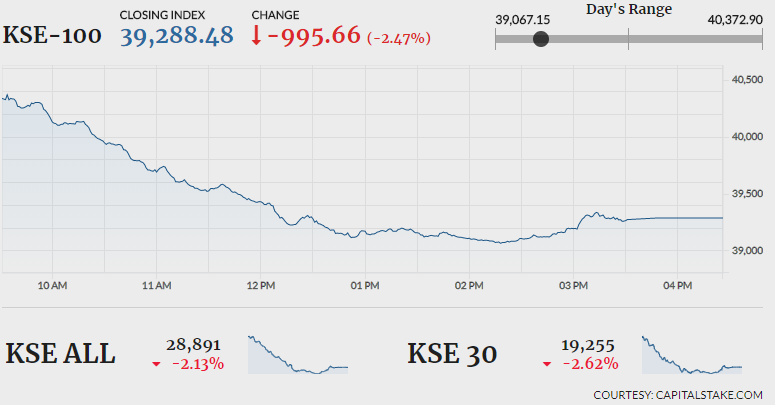Indonesia's Foreign Exchange Reserves Plummet: Two-Year Low Amid Rupiah Weakness

Table of Contents
Factors Contributing to the Decline in Foreign Exchange Reserves
Several interconnected factors have contributed to the recent plunge in Indonesia's foreign exchange reserves. Understanding these factors is crucial to grasping the gravity of the situation.
Reduced Exports and Increased Imports
The global economic slowdown has significantly impacted Indonesia's export-oriented industries. Weakening global demand, particularly for Indonesian commodities like palm oil and coal, has led to a decline in export earnings. Simultaneously, rising global energy prices have inflated Indonesia's energy import bill, widening the trade deficit.
- Weakening global demand for Indonesian commodities: Reduced purchasing power in key export markets has directly impacted revenue generation.
- Rising energy import bills: Indonesia's reliance on imported energy has exacerbated the situation, pushing up import costs.
- Increased reliance on imported goods: A stronger reliance on imported intermediate and capital goods further contributes to the widening current account deficit.
These factors contribute to a negative balance of payments, directly impacting the country's forex reserves. The resulting trade deficit and current account deficit are key indicators of this pressure on Indonesia's foreign exchange reserves.
Capital Outflows
Global uncertainty and rising interest rates in developed economies, particularly the US, have triggered significant capital outflows from Indonesia. Investors are shifting their assets to perceived safer havens, leading to a reduction in foreign investment.
- Flight to safety: Global economic instability prompts investors to move funds to perceived safer assets in developed countries.
- Higher US interest rates attracting capital: The Federal Reserve's interest rate hikes make US assets more attractive, drawing capital away from emerging markets like Indonesia.
- Reduced foreign direct investment (FDI): Uncertainty surrounding the global economy discourages long-term investments in Indonesia.
- Portfolio investment outflows: Short-term investments are quickly withdrawn, adding to the downward pressure on the rupiah and forex reserves.
This capital flight puts additional strain on Indonesia's foreign exchange reserves and further weakens the Rupiah.
Government Intervention to Stabilize the Rupiah
Bank Indonesia (BI), Indonesia's central bank, has implemented various measures to manage the exchange rate and support the Rupiah. These include monetary policy adjustments and potential interventions in the forex market.
- Bank Indonesia's monetary policy response: BI may raise interest rates to attract foreign investment and curb inflation, but this can also stifle economic growth.
- Potential interventions to support the Rupiah: BI might intervene directly in the forex market by selling US dollars to increase the Rupiah's value.
- Impact of government regulations on capital flows: The government may introduce regulations to manage capital flows and prevent excessive outflows.
While these interventions can provide short-term stability, they also have potential long-term economic consequences that need careful consideration.
Impact of the Decline on the Indonesian Economy
The decline in Indonesia's foreign exchange reserves and the weakening Rupiah have several significant implications for the Indonesian economy.
Increased Inflationary Pressures
A weaker Rupiah makes imports more expensive, leading to cost-push inflation. This increase in import prices directly impacts consumer prices, potentially affecting the purchasing power of Indonesian consumers.
- Cost-push inflation: Rising import costs increase production costs, leading to higher prices for goods and services.
- Impact on consumer prices: Consumers face higher prices for essential goods, reducing their disposable income.
- Pressure on the central bank to raise interest rates: To combat inflation, BI might increase interest rates further, potentially slowing economic growth.
Debt Servicing Challenges
The weaker Rupiah increases the burden of servicing external debt denominated in foreign currencies. Repaying these debts becomes more expensive in Rupiah terms, potentially straining the government's budget.
- Increased debt repayment costs in Rupiah terms: The cost of servicing foreign currency-denominated debt rises significantly.
- Potential impact on government budget: Increased debt servicing costs can lead to a larger fiscal deficit and limit government spending on other priorities.
- Risk of debt distress: In a worst-case scenario, the country might face difficulties in servicing its debt obligations.
Impact on Investor Confidence
The declining reserves and weaker Rupiah can negatively impact investor confidence in Indonesia. This can lead to reduced foreign investment, increased volatility in the Indonesian stock market, and potentially lower credit ratings.
- Reduced foreign investment: Uncertainty about the Rupiah's stability discourages both FDI and portfolio investment.
- Increased volatility in the stock market: The weakening currency and economic uncertainty can cause significant fluctuations in the stock market.
- Potential downgrades in credit ratings: Credit rating agencies might downgrade Indonesia's sovereign credit rating, increasing borrowing costs.
Conclusion
The decline in Indonesia's foreign exchange reserves to a two-year low, coupled with the weakness of the Rupiah, presents significant challenges. The interplay of reduced exports, capital outflows, and government interventions requires careful management. The impacts on inflation, debt servicing, and investor confidence necessitate a comprehensive strategy to strengthen the Rupiah and bolster Indonesia's economic resilience. Understanding these trends is crucial for businesses and investors. Monitor the situation closely and consider diversifying your investments to mitigate potential risks associated with Indonesia's foreign exchange reserves and the rupiah's performance. Stay informed about the ongoing developments concerning Indonesia's foreign exchange reserves and rupiah stability for informed decision-making.

Featured Posts
-
 Pakistan Stock Market Crisis Operation Sindoor Triggers Kse 100 Plunge
May 10, 2025
Pakistan Stock Market Crisis Operation Sindoor Triggers Kse 100 Plunge
May 10, 2025 -
 Young Thugs Uy Scuti Release Date Hints Emerge
May 10, 2025
Young Thugs Uy Scuti Release Date Hints Emerge
May 10, 2025 -
 Womans Racist Stabbing Spree Unprovoked Attack Leaves Man Dead
May 10, 2025
Womans Racist Stabbing Spree Unprovoked Attack Leaves Man Dead
May 10, 2025 -
 His Road To Redemption From Wolves To Europes Best
May 10, 2025
His Road To Redemption From Wolves To Europes Best
May 10, 2025 -
 West Hams Financial Future Navigating A 25m Gap
May 10, 2025
West Hams Financial Future Navigating A 25m Gap
May 10, 2025
